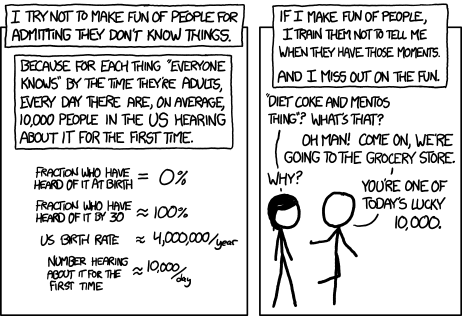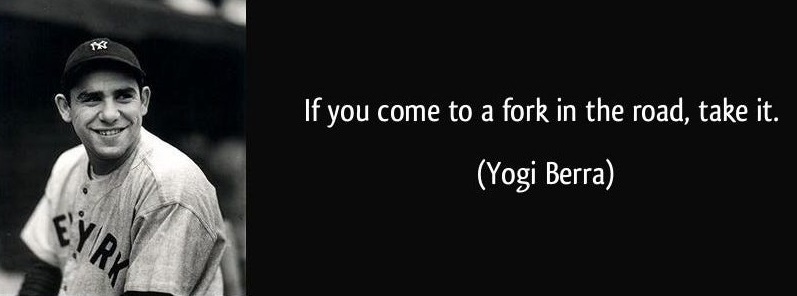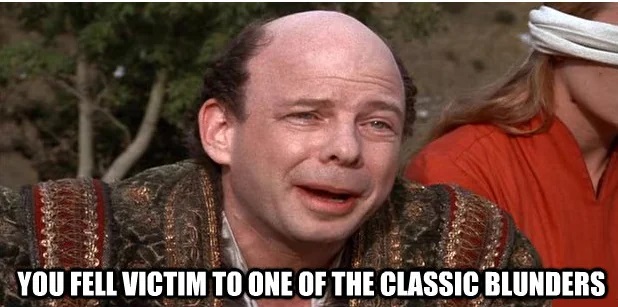As time marches ever onward, we’re in a constant state of re-teaching. Old folks retire and take their knowledge with them, and newer faces need to be taught the stuff that established folks can sometimes take for granted.
This came to mind recently when I saw a post on that most-cursed of social media sites, Twitter:
A bit later, I saw a similar gripe from a player at another event:
At one point in my judge career I also did top8 checks between the end of the Swiss rounds and the start of the Top8. I’d collect all the decks, put a sticky note with every name on each deckbox to keep track of whose was whose, and do a full check – making the players wait all the while. It wasn’t written in any documents that this was the right way to do things, it was the way I had been told. It was tribal knowledge.
Then, at some point, I was shown the error of my ways, and I thought everyone else had been too. I thought every judge understood that this wasn’t the best practice. But as some recent conversations and tweets have reminded me, if that were ever true (it wasn’t), it no longer is.
While it can be easy or tempting for folks “in the know” to take an easy jab at folks who aren’t up on the latest news, I try to be a little more constructive. Everyone started somewhere – there was a point when any of us didn’t know what we know now. The only bad positions would be refusing to learn a better way when presented with one, or seeing someone else’s ignorance as a chance to be rude instead of a chance to mentor. The comic XKCD put it well, a few years back:
So, let’s revisit some processes, reexamine some ways of doing things that may be a bit out of date, and get into why checks before the Top8 is Not Great.
The Problem With Courtesy Checks
Checking the Top8 decks before the Top8 starts is frequently referred to as “courtesy checks.” This is because doing them for players is, well, a courtesy. Players are expected to have submitted a legal decklist at the beginning of the day, and to present a deck that matches that list at the beginning of their first game of any match – whether it’s Round 1 or the Finals. If we ask for the players’ decks when they finish the Swiss rounds and give them a going over before beginning the Quarterfinals, we’re going to end up with a couple of potential options – none of them good.
Option One is that everything matches the lists and all is well. We give the decks back and get the players playing Magic. Everything is the same as it would have been if we hadn’t done anything at all, except the event has been delayed long enough for the players to get bored and start Tweeting (never a good thing).
Option Two is that we find a problem. A player has forgotten to desideboard or something along those lines, and we have to fix things up before the Quarterfinals can begin. Once again, two possible paths lie before us.
Option Two A: We tell the player and get things fixed. Quarterfinals can begin with everyone having a correct, legal deck. This is where the “courtesy” checks get their name – we’ve done the players the courtesy of helping them out a bit when really it was their responsibility to fix their deck, not ours. General consensus is that it’s better to get the players playing Magic, and if an issue pops up, sort it out then – the same as we would during the Swiss rounds.
Option Two B: We don’t tell the players. We just hand the decks back and let them start shuffling, and when they present their decks, we pounce. “Haha, you fool,” we tell the players. “You thought that just because the judge looked at your deck and handed it back without saying there was a problem that that meant there was no problem! Here’s your Game Loss!”
I hope it is obvious how catastrophic Option Two B is. One of the central, foundational tenets of judging is that we are there to help the players, not out to get them. It’s natural for the players to expect to be told if there was a problem with their deck, and if they aren’t told, to assume all is well. So if we find a problem and wait to mention it until we can issue a penalty, it’s working directly against that foundational ideal. It will make players feel they can not trust judges and that judges are looking for excuses to bring the hammer down. Not Great, Bob.
Given that there’s no great option presented if we do the deckchecks after Swiss, we’re better off simply not doing them. Get in the deckchecks you can during the Swiss matches and then start your Top8s and keep the players playing Magic.
Counterarguments
But Wait, some might say – in Option Two A, why not issue the appropriate penalty? We can finish the Swiss, do our deckchecks, issue any penalties appropriate, and then get on to the Magic, no?
Here’s the problem with that: when players are not in an active match, it doesn’t matter what their deck looks like. If a player in a Modern event wants to finish their round and shuffle a Charizard, a Black Lotus, a Blazing Shoal, and a ham sandwich into their deck, that’s not a problem until they start their next match. So long as they fix their deck by the next time they present the deck it’s all good.
The IPG has some relevant words for us, here:
The upgrade here only applies when a player has presented their deck to the opponent (which is why the timing of the swoop is so important), or during a deckcheck.
So…why doesn’t a pre-Quarterfinals check count as a deckcheck? For this, we turn to the definition in the MTR:

Uhhh…ok. Well, this is awkward. As far as I can tell, none of our documents actually define exactly what a deckcheck is, or what separates an official deckcheck from just looking at a player’s deck. I don’t have a line of text in the docs to point to which says in black and white that “courtesy” checks are not “real” checks.
Nonetheless, it stands to reason, for the same logic above. If a player hasn’t presented their deck to their opponent to cut, it doesn’t matter what the state of their deck is. If someone has finished their round and is walking around and watching the other matches, we aren’t going to stop them, inspect their deck, and issue a penalty if it doesn’t match their list. I would argue that there’s very little difference between that and doing curtesy checks, as in either case the relevant fact is the player isn’t in a match.
Coverage?
So far, I’ve mostly been talking about LGS-level events. Events with less than ~50 players, probably just one judge, and no huge prizes. The equation gets a little different when moving to larger or more prestigious events. There will often be a natural pause after the Swiss ends as coverage wants to get pictures or talk to the players so checking isn’t causing an extra delay, and there are multiple judges around so it takes less time to check the eight decks than at a solo event. The lists may be getting published, and if there’s coverage, it gets more awkward if the Top8 doesn’t play out naturally due to some sort of deck problem.
None of these extra considerations are at play for LGS-level events like RCQs. At a larger event, the common goal for the deckchecks team is to get all of the Top8 checked by the end of the Swiss rounds. Should they fail in that some drastic measures may need to be considered, but I’d still rather do most other options than courtesy checks (sideboard checks or full deckcheck during the Top8).
In Conclusion
Checking the Top8’s decks after the end of Swiss is simply not worth the time. It drags things out and it either doesn’t accomplish anything or puts us in an awkward bind. It can risk making players distrust judges.
It’s much better to keep the players playing Magic. Turn over the Swiss rounds into the Top8 with the same fervor we bring to turning over any other round. Do the deckchecks you can during Swiss rounds and then focus on watching Magic.
PS
Don’t count the lists either. Watch Magic.







Your argument doesn’t logically follow. You acknowledge that decks must be legal during deckcheck. You acknowledge that pre-top-cut deckchecks are not defined, by the rules, as different from normal deckchecks. But your entire argument against these deckchecks is based on an assumption that due to the inability to provide penalties because they’re not normal deckchecks when you’ve admitted that there is no support for that assumption as the rules do not differentiate between kinda of deckchecks.
If your argument comes down to public perception, logistics, etc then that’s fine. But your argument as written is based on an assumption that you yourself acknowledge as an invalid assumption.
I like the use of tribal knowledge, which I have often referenced as traditions. Traditions are the “best-practices” that we don’t examine the best-ness of, the continued habits that remain unexamined.
It seems to me that the purpose of this practice is the crux of the matter: it’s not about conducting a check of the deck to find a Deck Problem so much as for Marked Cards or a Decklist Problem. Given the increased scrutiny on those in the Top 8, this seems to be intended as a “due diligence” effort.
You’ve commented that this applies to LGS events than to larger premier events. Many of these stores employ judges who are not as involved in the large-event scene, and who often-times do not have an opportunity to work with other judges. That also means there are fewer people around to do the courtesy check. When I’ve done them in the past, it’s usually accomplished by grabbing a number of otherwise underoccupied staff at the end of the day while the players are being interviewed by coverage. This timing allows for minimal disruption to the schedule. The examples you gave seem more likely to be cases where a single judge is attempting to check eight decks in a row, which would already be proscribed by the time investment.
Finally, counting decklists is an artifact of not having an easy-to-use tool (read: free) for digital submission. I won’t argue against watching Magic.
One of my favourite parts of these kinds of articles is the discussion that happens in the comments. Unfortunately, most of that kind of talk happens on social media pages that are hidden from public view, and the next person down the line might not be able to see that discussion.
For sake of consistency, I’m sharing some questions that I found in those elsewheres:
Graham Bird asked: “In what cases do you think a Top 8 Courtesy check is required or highly recommended? Do you think it’s ever a requirement, or do you think a Typical checks team at a large event have what it takes to get all 8 of the Top 8 before Top Cut starts?”
Rhythmik asked: “Why check their deck when you can just check their sideboard after they start playing?”
Chris Wong mentioned: “One of the reasons that we “deck verified” before the Top 8 was not to just verify the contents of the deck but to make sure that normal wear and tear of the tournament didn’t affect the conditions of the cards/sleeves. Oh, that and tournaments are full of people who were less than honorable.
At higher-level tournaments, how much time are we burning by doing these checks?”